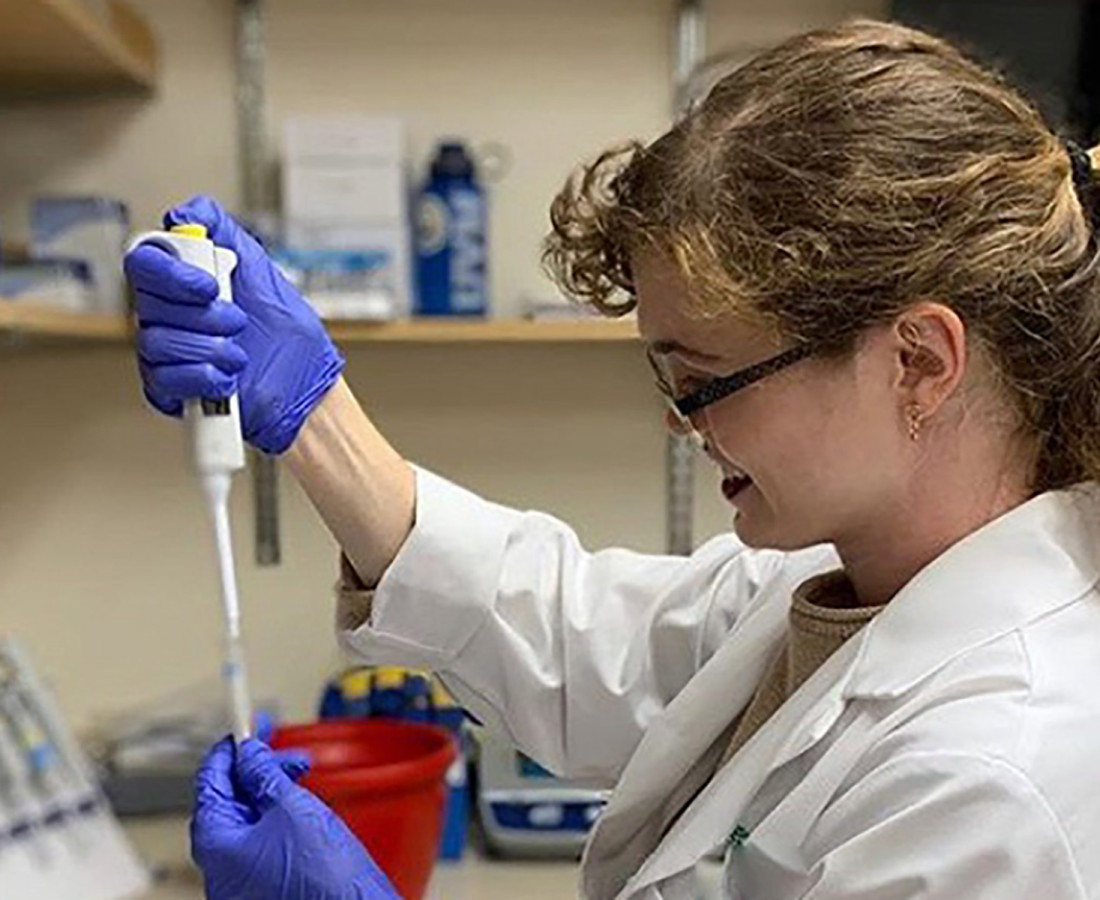Caroline Clark’s career after college bounced between art and medicine.
It was during an intensive artist residency in 2017 that she realized she wanted to work in medicine. Now, three years later, Clark is working at Dana-Farber Cancer Institute in Boston.
While her job as a clinical research coordinator for Dana-Farber’s Medical Oncology Department does not require her to be on the front lines of the COVID-19 pandemic, the crisis has further fueled Clark’s commitment to working in health care.
“This pandemic is highlighting the importance of addressing systemic injustices,” says Clark, who completed UVM’s Post-Baccalaureate Premedical Program in December 2019. “COVID is disproportionately impacting communities of color, lower-income communities, disabled communities, and our elders. These communities have been consistently impacted more by health injustices than other communities, and COVID is merely highlighting this existing pattern.”
A Passion for Health Care
Clark has long been interested in health care justice. She graduated in 2015 from Rhodes College, where she studied urban and community health, as well as studio art. She worked in health care and as an artist after college, but it took her some time to figure out her career path. It wasn’t until her artist residency at Virginia Commonwealth University that she decided to pursue a career in medicine.
“During my art residency, I had a lot of time to reflect, and I found my answer,” she says. “As a child, I had a lot of surgeries, and I hadn’t thought about those surgeries in a while. I was making art about my patient experiences. And as I was thinking about those memories, a light bulb went off. My passion for health justice was based on my experiences as a patient.”
One particular day during her residency was the turning point for Clark. In the middle of a woman’s art critique session, blood began coursing down the woman’s arm.
“I sprang into action and stabilized her, and right then another student said I should be a doctor. It was very dramatic,” she says with a laugh.
Choosing UVM’s Post Baccalaureate MD Program
While Clark was applying to post baccalaureate MD programs, her decision on where to attend came down between Tufts University and UVM. She chose UVM for many reasons, including its flexibility, research and shadowing opportunities, and personal advising component.
“What’s made a huge difference, now that I’m in medical school application mode, is that people from UVM have been willing to bend over backward for me. The people I shadowed with or worked with at UVM are willing to go the extra mile for me,” she says. “That really speaks to UVM as a teaching hospital, and it means so much as I’m at the beginning of my career.”
UVM’s Post-Baccalaureate Premedical Program is a 12 to 24-month program designed to help individuals achieve their goal of admission into medical school or other health professional programs.
UVM’s Post-Bacc Premed Program helps students pursue medical, dental, veterinary, pharmacy, physician assistant, nurse practitioner, physical therapy, and other health professions.
As Clark continues to work at Dana-Farber and apply to medical school, her experience during the COVID-19 pandemic—as well as her time at UVM—will leave an indelible mark on her commitment to medicine.
“Working in health care during a pandemic has reinforced my passion for medicine and my commitment to practicing medicine,” she says. “I’m excited to be on the path to an M.D. because I intend to use my degree to advocate for addressing health care injustices so I can better serve my patients.”
Interested in UVM’s Post-Baccalaureate Premedical Program?
Learn more



